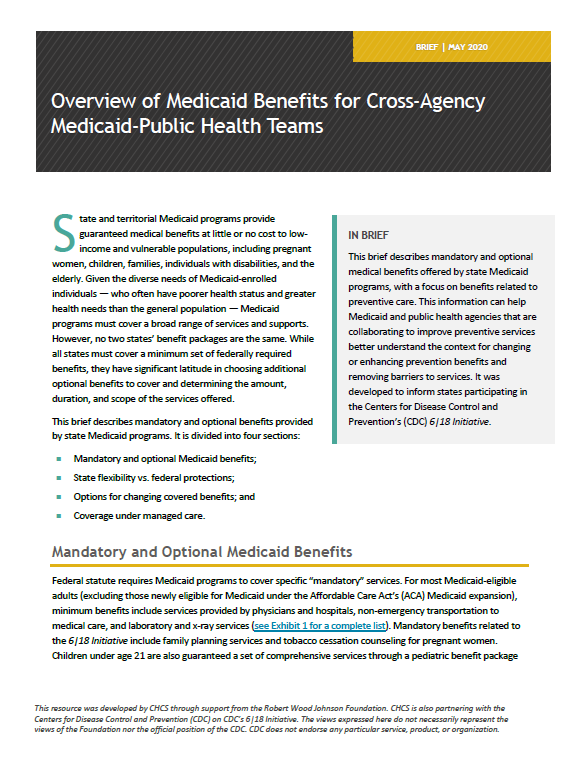
State and territorial Medicaid programs provide guaranteed medical benefits at little or no cost to low-income and vulnerable populations, including pregnant women, children, families, individuals with disabilities, and the elderly. Given the diverse needs of Medicaid-enrolled individuals — who often have poorer health status and greater health needs than the general population — Medicaid programs must cover a broad range of services and supports. However, no two states’ benefit packages are the same. While all states must cover a minimum set of federally required benefits, they have significant latitude in choosing additional optional benefits to cover and determining the amount, duration, and scope of the services offered.
This brief describes mandatory and optional medical benefits offered by state Medicaid programs, with a focus on benefits related to preventive care. This information can help Medicaid and public health agencies that are collaborating to improve preventive services better understand the context for changing or enhancing prevention benefits and removing barriers to services. It was developed to inform states participating in the Centers for Disease Control and Prevention’s (CDC) 6|18 Initiative.